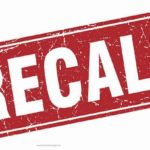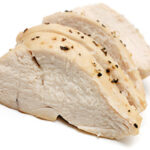The FDA denied a petition on phthalates in food packaging that requested that the agency reconsider its denial of a citizen petition issued by Earth Justice on May 19, 2022. The original denial was for a petition that Earth Justice filed showing that phthalates, a petrochemical used in food packaging, including packaging used for meat, milk, and spices, is harmful to human health. There is a ban on phthalate use in children's toys. Earth Justice claims that evidence shows phthalates interfere with the human body's hormone regulated processes, and can cause birth defects, infertility, miscarriage, breast cancer, diabetes, and asthma. At the time of the original denial, Earth Justice attorney Katherine O'Brien said in a statement, "FDA’s decision recklessly green-lights ongoing … [Read more...]
FDA Report on Food Poisoning Risk Factors in Restaurants
The FDA has released its report on food poisoning risk factors in fast food and food service restaurants. The report covers the years from 2017 t0 2018. Risk factors that can contribute to outbreaks of foodborne illness include inadequate cooking, poor personal hygiene, and using food from unsafe sources. This study is part of a ten-year study that spans the years 2013 to 2024. The restaurants used in the study were located across the country and were randomly selected by the FDA Retail Food Specialists. The key objectives of the study were to identify the occurrence of risk factors, the prevalence of food safety management systems, the prevalence of certified food protection managers, and prevalence of employee health policies. That last risk factor is important because the CDC … [Read more...]
FDA Issues Final Guidance for Inorganic Arsenic in Apple Juice
The FDA has issued final guidance for the levels of inorganic arsenic in apple juice to the action level of 10 parts per billion. This guidance is for industry to help protect public health, but it does not establish legally enforceable responsibilities. Inorganic arsenic is the most harmful form of this toxic heavy metal. Arsenic occurs in the environment, both naturally and as a result of arsenic-containing pesticides that were used on food crops. Pollution from coal-fired power plants, mining, and fracking also deposit the heavy metal in soils and in water. Acute symptoms of arsenic poisoning include vomiting, diarrhea, and abdominal pain, followed by numbness and tingling of the extremities. Long term complications of arsenic poisoning include cancer, liver disease, diabetes, … [Read more...]
Salmonella Sun Sprouts Warning Letter Sent After Outbreak
A Salmonella Sun Sprouts warning letter was sent to that company by the FDA after an outbreak, which happened from December 2022 to January 2023, linked to those raw sprouts sickened at least 63 people in eight states. The case count by state was: Arizona (1), Iowa (6), Kansas (6), Missouri (9), Nebraska (26), New Hampshire (1), Oklahoma (1), and South Dakota (13). Ten people were hospitalized. The FDA inspected the sprouting operation of Rhodes Legacy Inc. doing business as Sun Sprouts, because of the outbreak. FDA's traceback investigation identified the brand's alfalfa sprouts as a likely source of illnesses in that outbreak. The inspection revealed "serious violations of the Standards for the Growing, Harvesting, Packing, and Holding of Produce for Human Consumption … [Read more...]
Import Alert For Morel Mushrooms Imported by a Company in France
The FDA issued Import Alert 25-02 for morel mushrooms imported from a company in France on May 23, 2022 because, in the past, shipments of canned and dried mushrooms were detained because of the presence of Gyromitra esculenta, or false morel. This species can produce monomethylhydrazine (MMH), which is a toxin that can cause severe gastrointestinal illnesses and, in some cases, death. The Center for Food Safety and Applied Nutrition (CFSAN) identified another species, Verpa bohemica, or early morel, which can also cause illness in some people. All morel mushrooms imported from that company and false morel mushrooms, also imported from that company, in the form of fresh, canned, and dried, are subject to this import alert until further notice. Morel mushrooms are a distinctive … [Read more...]
FDA Report on 2022 Cantaloupe Salmonella Outbreak
The FDA has issued a report on the 2022 cantaloupe Salmonella outbreak that sickened at least 88 people and hospitalized 32. No specific brand was named, and no grower was named. The cantaloupe was grown in southwest Indiana in the summer of 2022. There is quite a long history of food poisoning outbreaks linked to cantaloupe. The case count for that outbreak was: Georgia (1), Illinois (5), Indiana (17), Iowa (39), Kentucky (3), Michigan (3), Minnesota (4), Missouri (2), Ohio (3), South Carolina (1), and Wisconsin (10). The last illness onset date was September 13, 2022. The FDA inspected three farms in Indiana, their common packinghouse, and public lands near the farms. Environmental samples positive for Salmonella were found at each location, but none of the isolates matched … [Read more...]
FDA Strategy to Increase Resilience of Infant Formula Market
The FDA has released a national strategy to increase the resilience of the infant formula market in the United States. Last year, cronobacter illnesses among some infants led to the inspection of Abbott Nutrition's Sturgis, Michigan plant where problems were found, including multiple swabs indicating cronobacter contamination. Many recalls were issued and the plant was closed, which threw the infant formula supply in the United States into chaos. While there was not a match between the contamination in the Abbott plant and the sick infants, the situation highlighted how brittle the supply of powdered infant formula is in this country. In 2022, the Food and Drug Omnibus Reform Act directed the FDA to develop this strategy to help keep the market for this product stable. FDA … [Read more...]
FDA Completes Second Pre-Market Consultation for Cultured Food
The FDA has completed its second pre-market consultation for human food made using animal cell culture technology. The information was submitted to the FDA from GOOD Meat, Inc. The firm is using animal cell culture technology to take living cells from chickens and grows the cells in a controlled environment to make cultured animal cell food. This consultation is not an approval process. It means that after the government has evaluated the data and information that was shared by the firm, the FDA has no further questions at this time about the firm's safety conclusion. GOOD Meat says that its products are meat made from cells of animals instead of slaughter. During this consultation, the FDA evaluated the company's production process and the cultured cell material that was made in … [Read more...]














